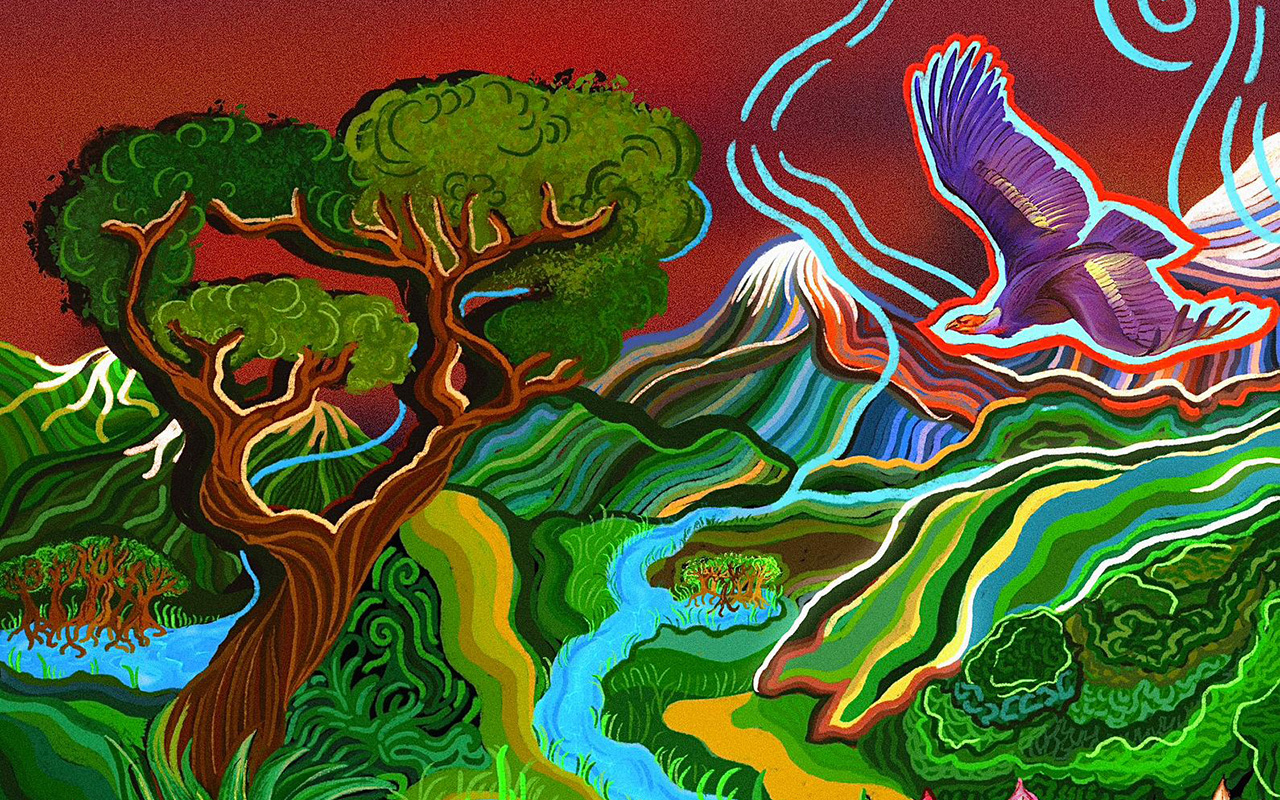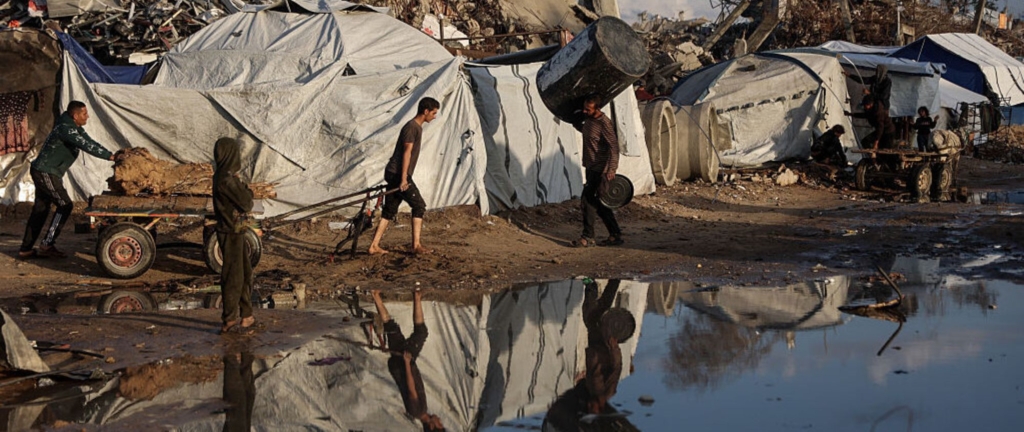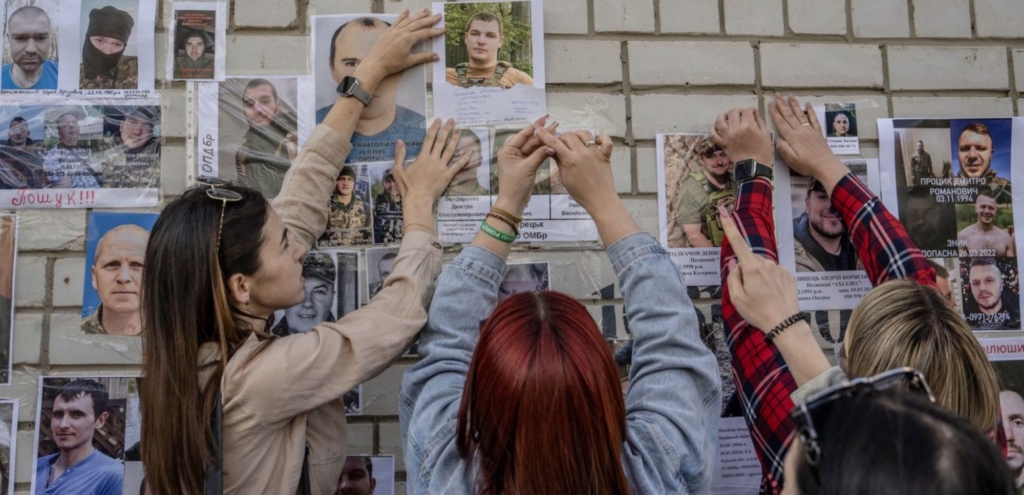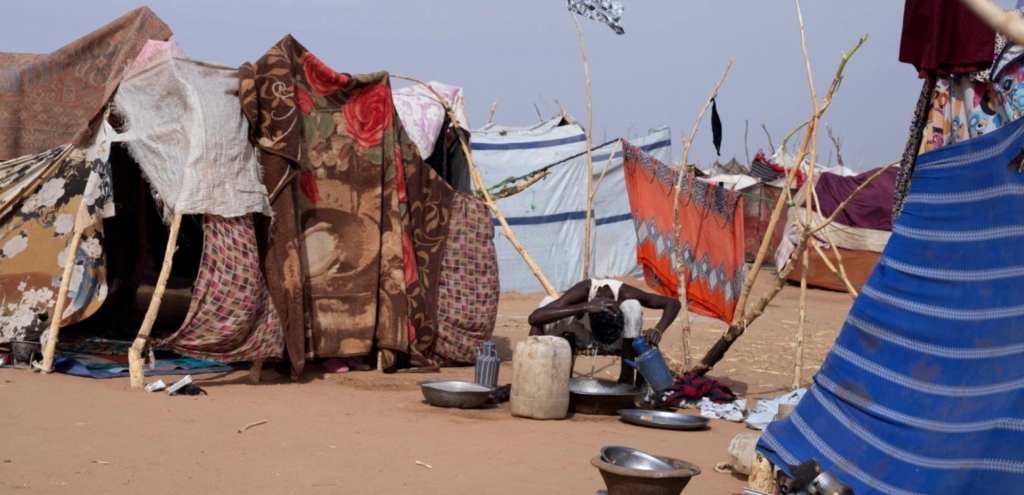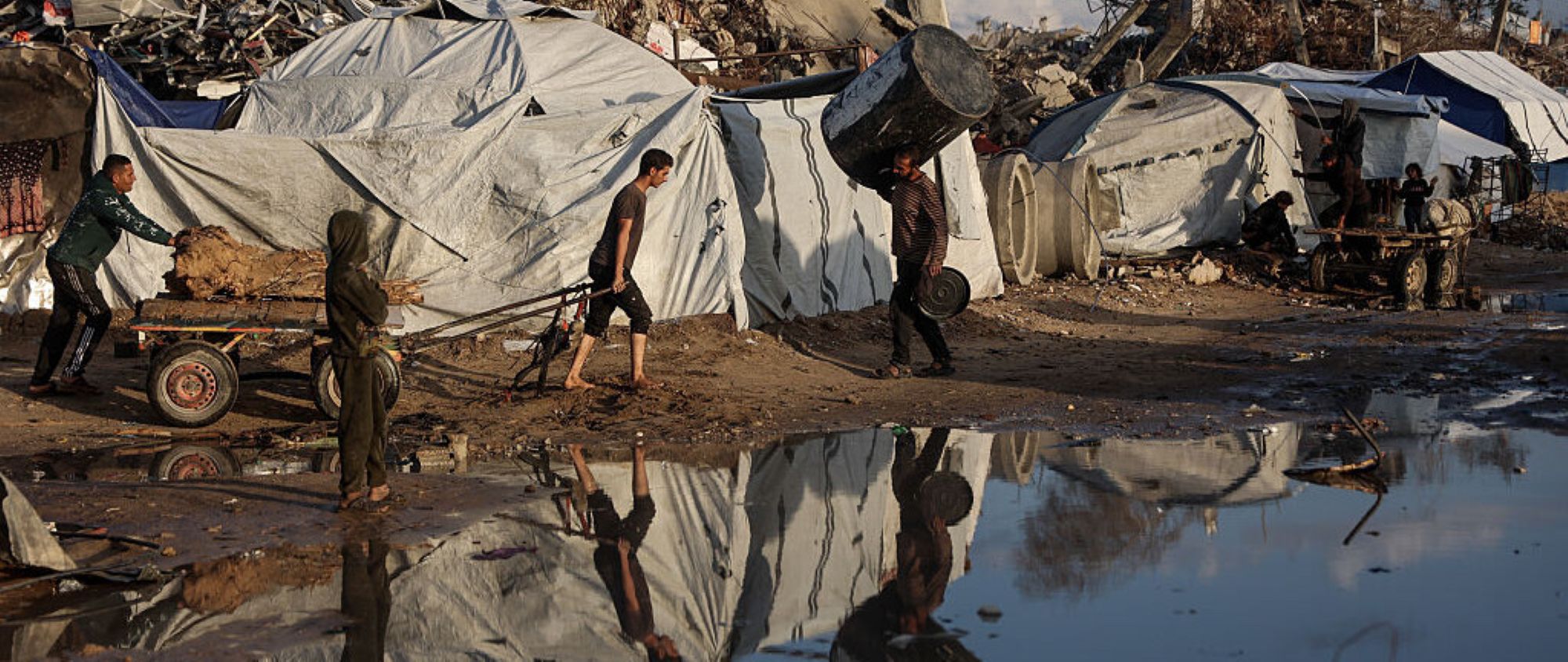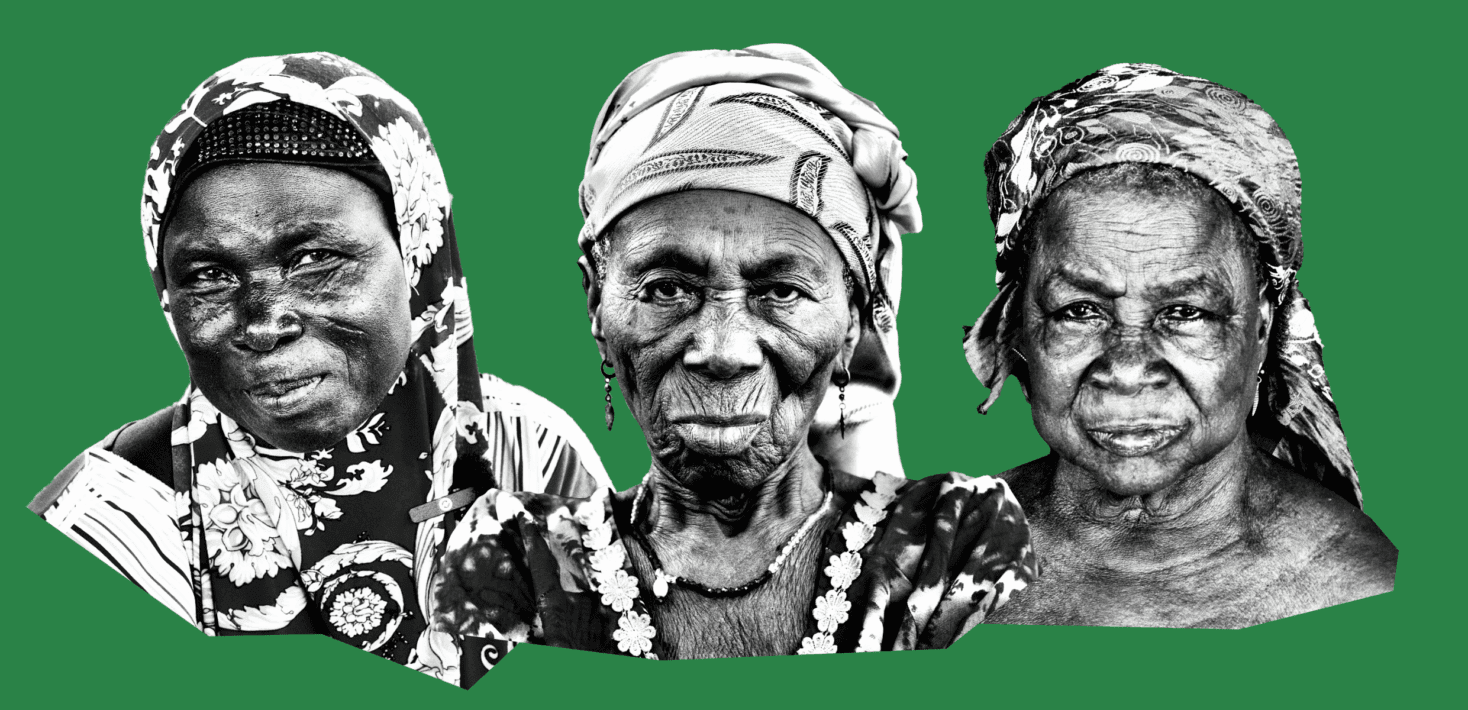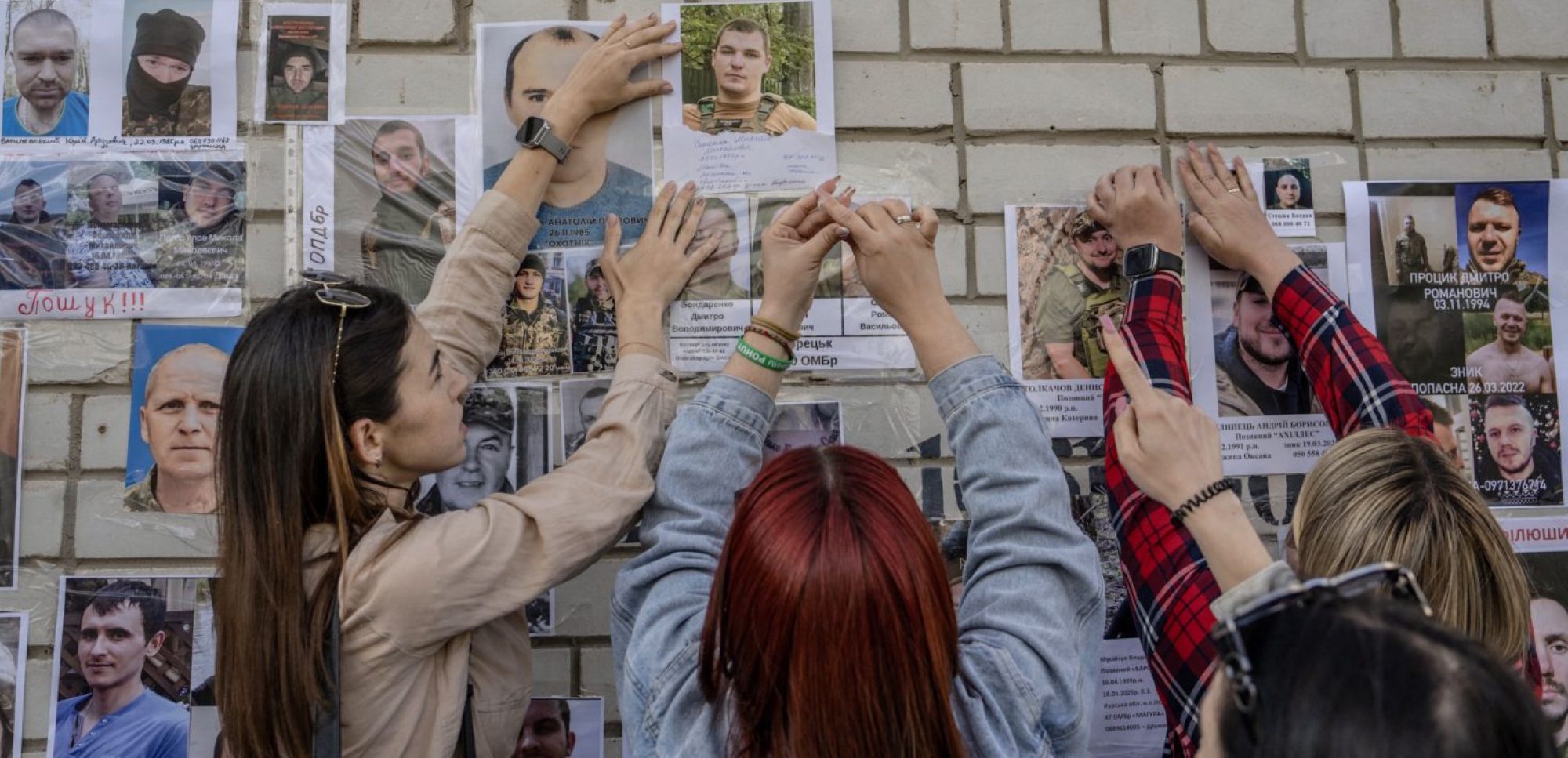Four women leaders on the front lines of increasingly dangerous efforts to protect rights and the environment in Ecuador will visit Canada next week to speak out against intensifying trade talks aimed at expanding Canadian resource-extraction projects in ecologically vulnerable regions.
During the seven-day Why We Say No Tour starting on September 29, 2024, the four Indigenous women and rights defenders will meet with government leaders, parliamentarians, trade negotiators, Indigenous leaders, civil-society organizations, and the press in Toronto, Ottawa, and Montreal. The tour is kicking off ahead of the fourth round of high-stakes trade negotiations that could open the floodgates for new Canadian resource extraction investment in Ecuador.
- Related: Human rights organizations sound alarm as Canada-Ecuador trade talks get underway
- Take action: Speak up to ensure trade negotiations do not sacrifice human rights in Ecuador
While Canada has pledged to secure an inclusive trade deal respecting democracy and human rights, there has been no consultation with Indigenous nations and rural communities in Ecuador, even as they report serious and ongoing abuses tied to existing Canadian projects. This failure violates the United Nations Declaration on the Rights of Indigenous Peoples (UNDRIP) to which Canada is party and has integrated into domestic law.
‘Our territory, our rights, and our lives are at stake in this trade deal, and it’s being negotiated behind our backs and without our consent.’
Zenaida Yasacama, Vice President, Confederation of Indigenous Nationalities of Ecuador
“Our territory, our rights, and our lives are at stake in this trade deal, and it’s being negotiated behind our backs and without our consent,” says delegation member Zenaida Yasacama, vice-president of the Confederation of Indigenous Nationalities of Ecuador (CONAIE), Ecuador’s largest Indigenous body. “We already know from experience the harm more Canadian mining will bring, which is why we’re coming to Canada to urgently call on the government to reconsider a trade agreement that will make a deteriorating human rights situation worse.”
At least 15 Canadian mining companies have active operations in Ecuador. Many are facing allegations of abuse, including conducting exploration activities in Indigenous territories without consultation or consent and collaborating with state security forces to violently suppress social protest.
Solaris Resources is among the Canadian companies facing allegations of abuse as it attempts to advance its Warintza open-pit copper-gold project in Shuar Arutam territory in the Ecuadorian Amazon. Canada and Ecuador must investigate these allegations, hold accountable those found responsible and ensure reparations to the impacted communities.
“We are already experiencing very serious social and environmental impacts. We are being threatened, our territory is being expropriated and I’m at risk for speaking out,” says Fanny Kaekat, a leader with the Shuar Arutam People, community of Maikiuants, and a member of the Amazonian Defenders of the Forest, a collective of women from seven Indigenous nations in the Amazon region. “The Ecuadorian government has not consulted with us and is hiding information about its negotiations as it turns our territories into sacrifice zones.”
The delegation from Ecuador is also concerned about government plans to include investor-state dispute settlement (ISDS) in the Canada-Ecuador trade deal at the request of the mining industry. Investor-state dispute settlement, an unaccountable form of private arbitration, allows foreign investors to sue governments that strengthen environmental or human rights protections. Multiple UN bodies and experts have recommended that ISDS not be included in new trade agreements and be removed from existing ones, warning that the mere threat of a multi-million- or multi-billion-dollar lawsuit leads to regulatory chill, shackling states in their efforts to combat climate change and live up to their international human rights obligations.
“ISDS is already prohibited by Ecuador’s Constitution and people voted in a referendum this past April to reaffirm this ban,” says Ivonne Ramos from Acción Ecológica, the third organization participating in the visit to Canada. “Including any provision allowing for ISDS in this trade deal would drastically limit Ecuador’s ability to govern in the interest of all Ecuadorians, setting a serious precedent for disrespecting the Constitution and the will of the people.”
Like all members of the Ecuadorian delegation to Canada, Hortencia Zhagüi represents growing movements across Ecuador to strengthen democracy, uphold Indigenous and rural campesino (or farmer) rights, and protect water and biodiversity in a time of deepening climate crisis. Ms. Zhagüi, who represents Kimsakocha Women’s School of Agroecology and the Board of Potable Water Administrators of Victoria del Portete and Tarquí, is involved in efforts by communities to protect a high-altitude wetland from the harms posed by Dundee Precious Metals, a Canadian mining company. A 2022 independent review found the company’s proposed Loma Larga goldmine project was a “ticking time bomb” for arsenic contamination in the highly sensitive and important watershed.
“This free trade agreement threatens to increase Canadian mining investment here, putting at serious risk the health of these unique high-altitude wetlands, the biodiversity they sustain, and the thousands of people who depend on the water they provide,” says Ms. Zhagüi. “In the same way that water flows across borders, the ramifications of this trade deal will extend far beyond the borders of our two countries. If we join together, however, we can stop it before it’s too late.”
Canada is Ecuador’s largest foreign investor, with more than $1.8 billion invested in the mining sector alone. Sweeping regulatory changes over the past several years have sought to make Ecuador a premier destination for Canadian mining, and this trade deal represents a decisive step in deepening bilateral relations between the two countries.
Adoption of hardline, militarized security policies and executive decrees in Ecuador have exacerbated a dire human rights situation. People who speak up for rights and justice face grave security risks, especially those who work to protect land, territory and the environment, opposing the impact of extractive companies.
Itinerary
The Why We Say No Tour begins in Toronto, where the delegates from Ecuador will meet with Indigenous leaders, civil-society organizations, and engage with journalists. From October 1-3 the delegation will be in Ottawa to meet with MPs, parliamentary committees, and government leaders, including Canada’s Ambassador for Women, Peace and Security and Canada’s Chief Negotiator in the Canada-Ecuador trade talks as well as representatives of the Ministers of Foreign Affairs and International Trade. There will be a press conference on Parliament Hill on October 2 (time to be confirmed, National Press Theatre, Room 325, 180 Wellington Street). The delegation will also meet with trade unions and speak at a public meeting on the evening of October 3 at the headquarters of the Public Service Alliance of Canada (7 p.m. EDT, 6th floor, 233 Gilmour St.). The tour concludes in Montreal, where the delegates will engage with Quebec-based stakeholders and francophone media. They will speak at a public meeting on October 4 at the offices of the Centre international de solidarité ouvrière (1601, avenue de Lorimier, Montréal).
The tour’s supporters are five leading Canadian organizations in spheres of human rights, environmental justice and labour: Amnesty International Canada, the Canadian Centre for Policy Alternatives, the Canadian Labour Congress, MiningWatch Canada, and KAIROS: Canadian Ecumenical Justice Initiatives. Thirteen Canadian trade unions and civil-society organizations are supporting the visit.
Supporting quotes
“Canada has an obligation to ensure its trade agreements do not undermine human rights, especially the rights of Indigenous Peoples and other historically marginalized communities. Amid widespread human rights violations in Ecuador, particularly in mining-affected communities, we are deeply concerned that Canada-Ecuador trade negotiations and promotion of more Canadian mining in Ecuador threaten to make a bad situation worse. We urge the Canadian government to act on our repeated calls for an independent human-rights impact assessment.” –Ketty Nivyabandi, Secretary General, Amnesty International Canadian Section (English-Speaking)
“The Noboa and Trudeau governments’ commitment to concluding an ‘inclusive’ trade deal this year rings hollow. The planned agreement is expected to generate meager real trade gains for either country—in the low millions of dollars—and is clearly aimed, instead, at boosting Canadian mining and agricultural interests in Ecuador while locking in unpopular economic reforms benefiting Ecuadorian elites.” –Stuart Trew, Senior Researcher, Canadian Centre for Policy Alternatives
“Women, children and non-normatively gendered sexually oriented persons, especially Indigenous and Afro-descendant peoples, feel the brunt of resource extraction most acutely. They are often displaced, suffer the destruction of Indigenous ancestral knowledge, and sustain various forms of gendered and sexual violence linked to the influx of male workers in their communities. Contrary to myth, they experience a decline in economic prosperity and are vulnerable to significant illness and disease when handling contaminated water, which they use in domestic work. Although rarely consulted on proposed mining projects, women typically speak out as leaders in the defense of land and water, making them more vulnerable to violent retaliation.” –Silvia Vasquez-Olguin, Global Partnerships Coordinator for Latin America and Gender Justice, KAIROS: Canadian Ecumenical Justice Initiative
“Ecuadorians know firsthand the harm Canadian mining companies can cause in their communities, as they experience projects imposed through violence, militarization, and without consent. A Canada-Ecuador Free Trade Agreement means more mining with minimal protections for communities and the environment, and with no mechanisms in Canada that can hold companies accountable for abuse.” –Viviana Herrera, Latin America Program Coordinator, MiningWatch Canada
Delegates’ bios
Zenaida Yasacama of the Kichwa Ancestral People of Pakayaku and vice-president of The Confederation of Indigenous Nationalities of Ecuador (CONAIE). CONAIE is the largest Indigenous rights organization in Ecuador. On July 2, CONAIE submitted a bill to the National Assembly for Free, Prior and Informed Consultation for the corresponding consent within the territories of Indigenous communities. Recently, Zenaida’s team was involved in a successful campaign to protect the Yasuní Biosphere Reserve from resource extraction.
Fanny Kaekat, a leader with the Shuar Arutam People, community of Maikiuants, is a member of Amazonian Women Defenders of the Forest, a collective formed by women belonging to the seven Indigenous Peoples of the Ecuadorian Amazon. These defenders have been threatened and attacked with impunity for defending ancestral territory, nature, the health of their communities and the safety of women and girls. In February, the Shuar Arutam People filed a complaint against Solaris Resources Inc. before the British Columbia Securities Commission.
Hortencia Zhagüi is a representative of the Board of Potable Water Administrators of Victoria del Portete and Tarqui. The Indigenous and campesino communities that form the organization are facing risks from Canadian mining companies in the Páramo de Kimsakocha, a high-altitude Andean wetland that provides water for tens of thousands of people and is essential for biodiversity conservation. Hortensia is also a member of the Kimsakocha Women’s School of Agroecology, which promotes food sovereignty.
Ivonne Ramos works with Acción Ecológica (Ecological Action) and accompanies processes of territorial defence led by women working towards the protection of rights. She is a member of the Latin American Network of Women Defenders of Social and Environmental Rights and the Saramanta Warmikuna network of women defenders of nature. Acción Ecológica is a member of Ecuador’s Alliance for Human Rights.
(Header illustration by Rachel Lim)












